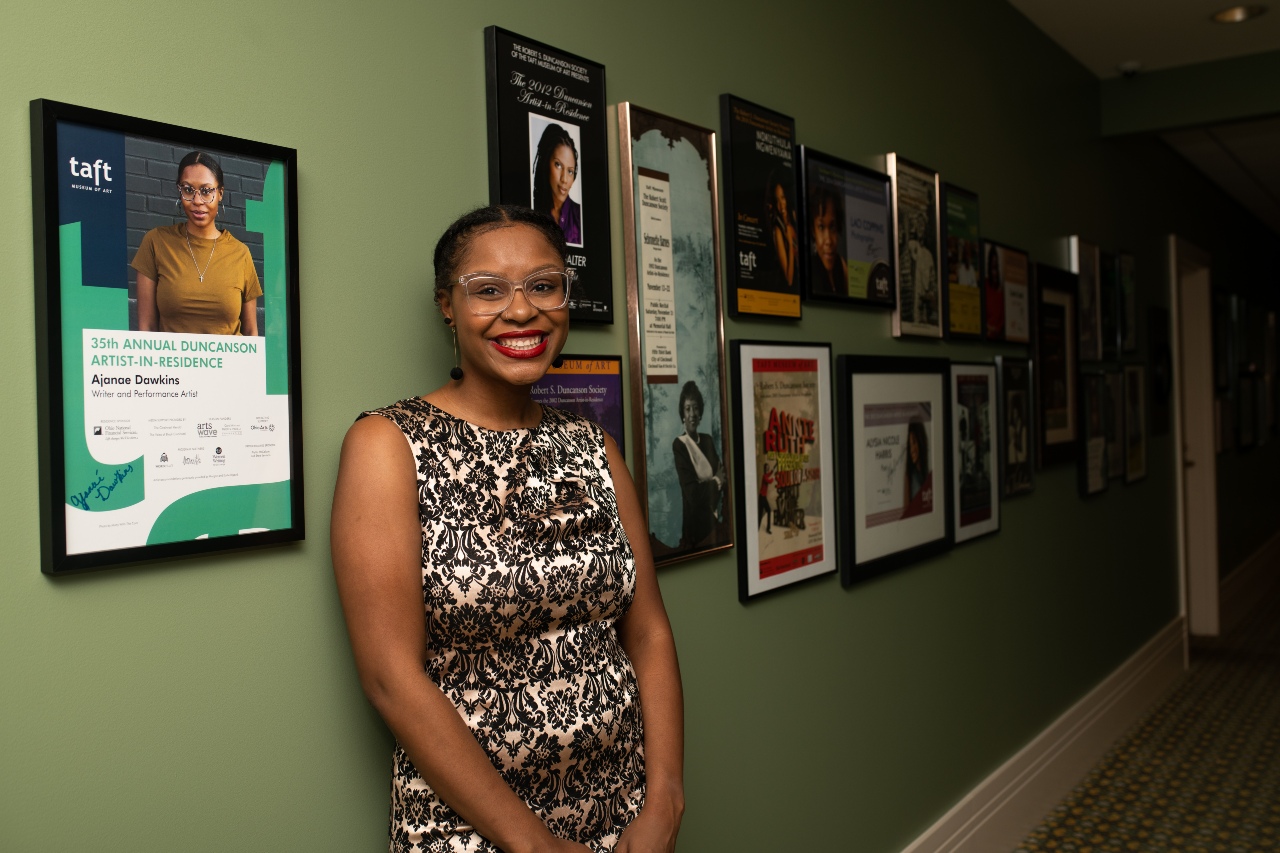
Just recently, First Wave, a Hip Hop and urban arts scholarship initiative housed under UW-Madison’s Office of Multicultural Arts Initiatives, held its annual Passing the Mic Festival, highlighting its impactful history of 17 years providing opportunities for students to find a home in higher education.
One of those First Wave students throughout its history who might not have come to UW-Madison if it weren’t for the program is Ajanaé Dawkins, who earned her bachelor’s degree in English in 2018 and was part of First Wave’s 7th cohort. Dawkins was truly exposed to the range and depth her artistry could go when creative writing professors such as Amaud Johnson and Amy Quan Barry motivated her to seek out a degree in the field, and start exploring what direction she would take that degree in.
“As soon as I graduated, I went into teaching,” Dawkins told Madison365. “I was teaching seventh grade English Language Arts, which, contrary to a lot of other sentiments I’ve heard, I loved the work. I loved working with my students, I loved curriculum building, but there were some bureaucratic things and administrative things that I was not a fan of. Just being in the classroom with my students was amazing, but it was such a tax on my time. I was working, between that and a second job, around 60-70 hours a week. It was so unsustainable for me to do that, and to continue working as an artist.”
Dawkins decided to pursue graduate education at Randolph College in Virginia focusing on poetry and theology. From developing her artistry with First Wave in consideration of the socio-political climate at that time, to connecting faith and art to reimagine Black people in art during her MFA, Dawkins reflected on how access was actually one of the most crucial aspects of pursuing the degree.
“I was also there at a very politically charged time,” said Dawkins. “That was also when my work stopped being so much about the personnel and just writing about my family, and started thinking more about what does it mean for me to be a Black writer who is writing about issues that are currently impacting Black folks in America? What does it mean to be a writer who is a woman who was talking about the things that specifically impacted Black women? When I went to get my MFA (Master of Fine Arts) in poetry, I was going in there with the idea that this program would develop my craft, and more so that I would not be excluded from spaces as an artist.”
Dawkins spoke to how an MFA opened more opportunities and funding for her, but how important it was for the work she does to speak to something more than just academia. This mindset is reflected in the work she does with the Poetry Foundation as co-host of the VS Podcast with fellow co-host Brittany Rogers.
The podcast, previously co-hosted by 1st cohort First Wave alum Danez Smith, serves as a piece of what Dawkins expressed as one of the most important parts of Black art, keeping Black voices alive for further generations.
“I think the role of Black storytellers, whether you’re talking about poets or fiction writers or filmmakers, and there’s a lot of debate about what it means for us to have a job or a role, is that we’re archivists,” Dawkins explained. “I think I’m most concerned with making sure that I’ve done my job of preserving some element of a Black story that will exist in the world because nobody else is particularly interested in it or has that perspective.”
Dawkins also stays busy with other artistic pursuits in essays and one-woman shows focusing on experiences and stories that she both knows but also expands into a larger context. However, one path that will be particularly consuming of Dawkins’s time, for now, is in advertisement, a field that she says is interesting in its only recent turn towards more diverse experiences and perspectives.
“I’m interested in what my capacity to tell Black stories will do in service for Black-owned companies,” said Dawkins in closing. “As well as service for companies who have no clue what it looks like to talk about or to look at their Black customers and consumers to be able to actively tell stories that include them with care, and not with ignorance. In my day to day, I am making a pivot towards advertising, so I’ll be doing that in conjunction with the art.”



